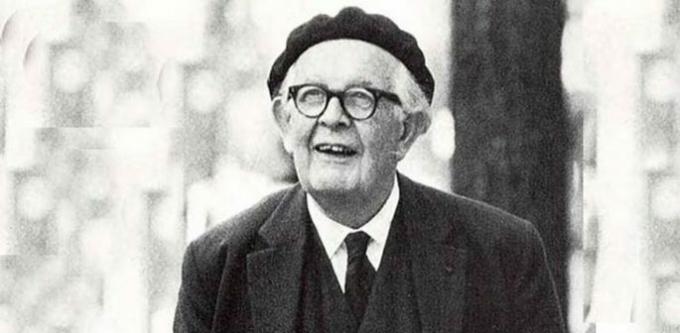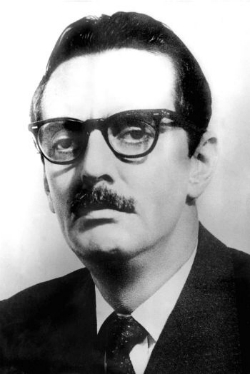Jean Piaget (1896-1980) was a Swiss psychologist, biologist and thinker. His theory and thoughts contributed to the understanding of child development and children's learning.
Until today, the call Piaget method it is part of academic studies in the fields of education and psychology.
Piaget's theory: the theory of learning in early childhood education
Piaget's theory, called the Piagetian theory, focuses on child development and is therefore called developmental theory. According to him:
Childhood is the time of greatest creativity in a human being's life.
Anchored in studies on human and cognitive development, Piaget's so-called cognitive theory was called by himself “genetic epistemology”. His theory was fundamental to the emergence of the constructivist current.
The 4 Stages of Piaget's Development
According to Piaget, the child goes through four phases of development until reaching adolescence. These stages are related to the cognitive capacity of the human being, that is, with the construction of knowledge in the psyche. Are they:
1. Sensory-motor internship (from 0 to 2 years)
The name itself indicates that at this stage the child's sensations and motor coordination are developed. Although the capacity for cognition is limited, at that moment, she begins to perceive the world around her, starting to recognize objects.
2. Pre-operational internship (from 2 to 7 years)
With the development of speech, the child begins to name the objects that surround him at the same time that he starts to have a mental capacity to remember them (mental representation). The reasoning is also beginning to be developed, although it is in its initial phase.
3. Stage of concrete operations (from 7 to 11 years old)
This phase is related to the cognitive ability to concretely solve some problems. In it, the child begins to have a greater capacity for interpretation and, therefore, is already able to solve some basic problems. Some concepts are internalized, for example, numbers and mathematical operations.
4. Stage of formal operations (from 11 years to 14 years)
In adolescence, logical reasoning develops and the individual begins to think for himself, at the same time as he has the ability to create theories and reflect on the possibilities of the world. It is, therefore, a phase of autonomy.
Jean Piaget Biography
Jean Piaget was born in the Swiss town of Neuchâtel on 9 August 1896. It was there that he spent his childhood alongside his parents, Artur Piaget and Rebecca Suzane. Very curious and diligent, it was at the age of 10 that he published his first article.
From an early age, his interest in nature was notorious and certainly fundamental to his first academic choice. So in 1918 he graduated in Natural Sciences from the University of Neuchâtel.

From there, he began to publish some articles and books, the first of which was published in 1923: The child's language and thought.
The following year, he marries Valentine Châtenay, and with her he has three children. It was from the observation of his children's development that he created much of his theory.
Piaget began studying philosophy and psychology and even traveled to Zurich and Paris. In the French capital, he delves into child psychology and, as a result, publishes five works related to this universe.
Undoubtedly, his works start to arouse the interest of theorists on the subject, being invited to lecture in some places, in addition to being invited to be a professor.
It was in his hometown that he began teaching psychology, philosophy and sociology at the University of Neuchâtel. Soon after, he was also a professor in Geneva, Switzerland, at the Jean-Jacques Rousseau Institute.
Jean Piaget died in Geneva on September 16, 1980, aged 84 years.
Piaget's Works
Piaget has a very extensive work, with around 50 published books and a considerable amount of academic articles. Of all his work, the following stand out:
- Children's Language and Thought (1923)
- Physical causality in children (1927)
- The representation of the world in children (1926)
- The Child's Moral Judgment (1932)
- The birth of intelligence in children (1936)
- Symbol formation in children: imitation, game and dream, image and representation (1945)
- The notion of time in children (1946)
- The Psychology of Intelligence (1947)
- Genetic epistemology: wisdoms and illusions of philosophy. Problems of Genetic Psychology (1950)
- The construction of reality in children (1950)
- Six Psychology Studies (1964)
- Child Psychology (1966)
- Psychology and Pedagogy (1969)
- Psychology and epistemology: towards a theory of knowledge (1971)
- where is the education going to? (1973)
Quotes by Jean Piaget
- "The main objective of education is to create people capable of doing new things and not simply repeating what other generations have done.."
- "The ideal of education is not to learn as much as possible, to maximize results, but above all to learn to learn, it is to learn to develop and learn to continue to develop after school."
- "Human beings are active in the construction of their knowledge and not a 'deformed' mass to be shaped by the teacher."
- "Human phenomena are biological in their roots, social in their ends and mental in their means."
- "Knowledge is not predetermined by heredity; it is not predetermined in the things around us - in knowing the things around him, the subject always adds something to them."
Learn more aboutEpistemology.



